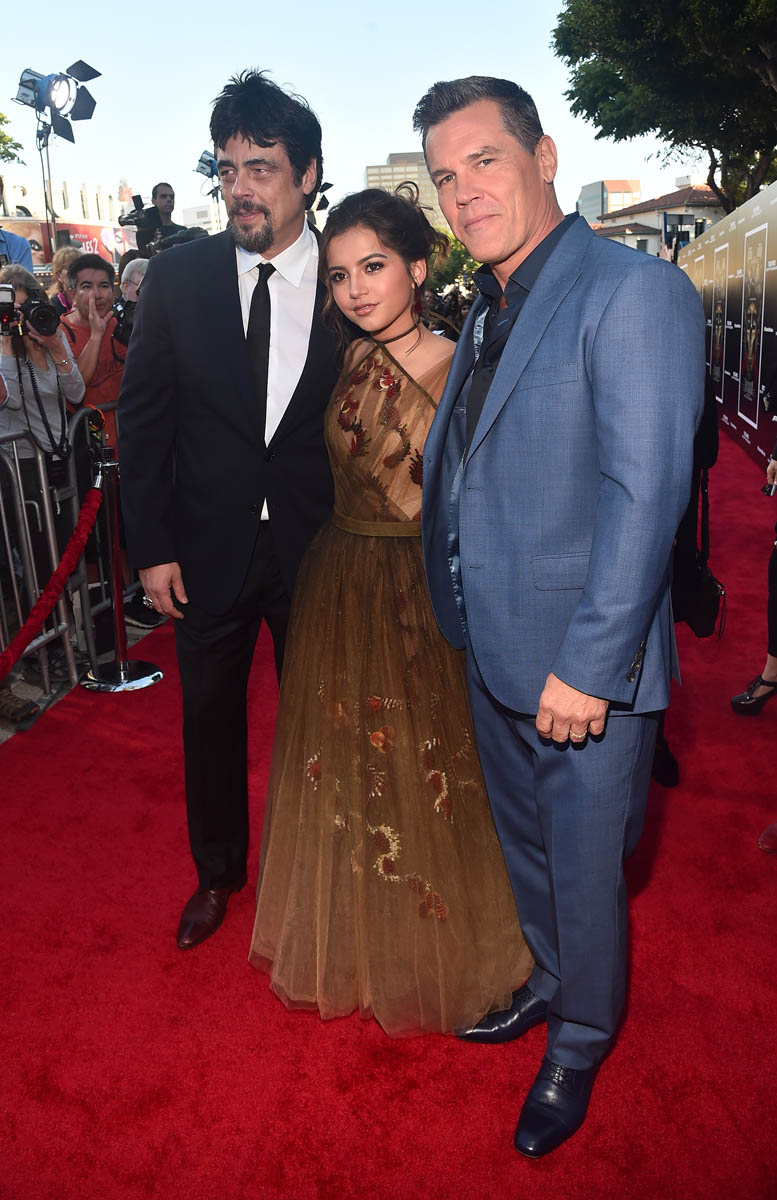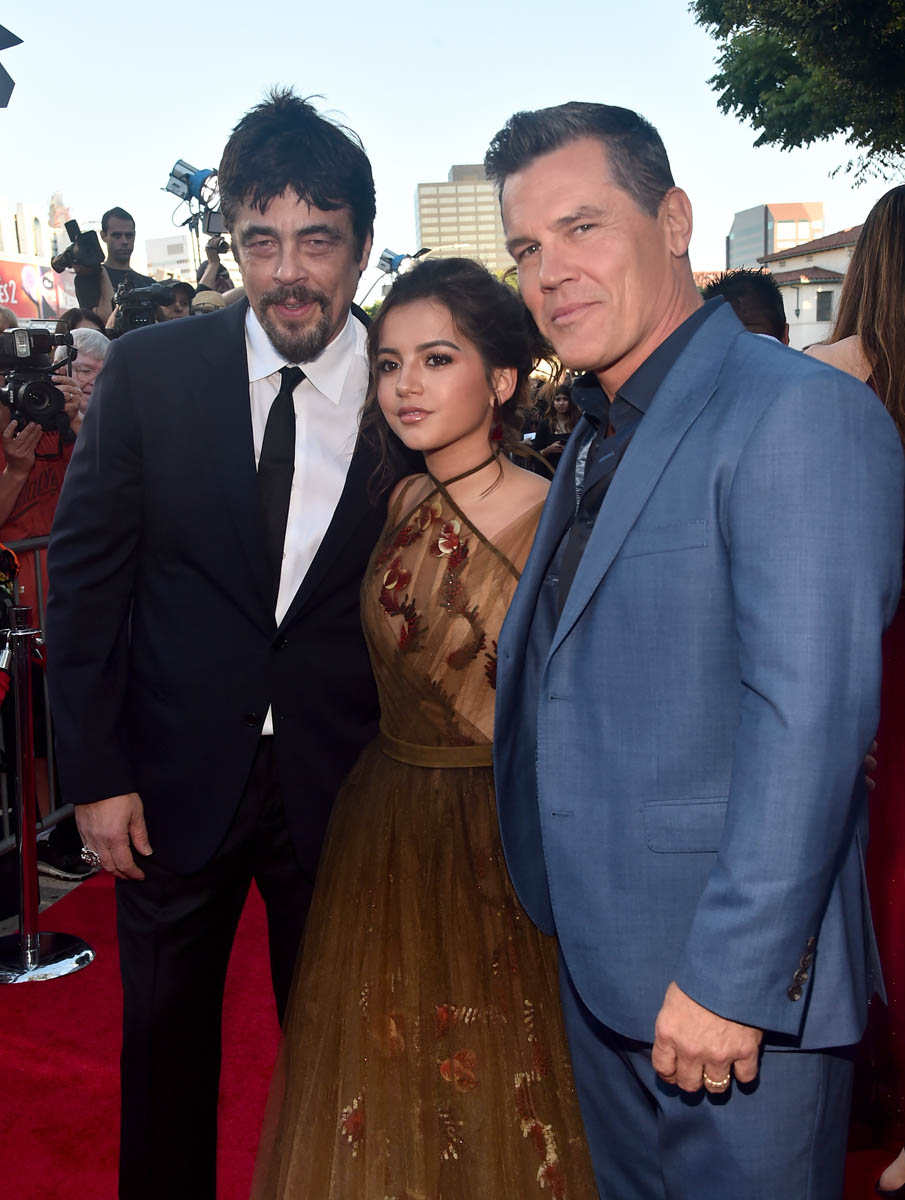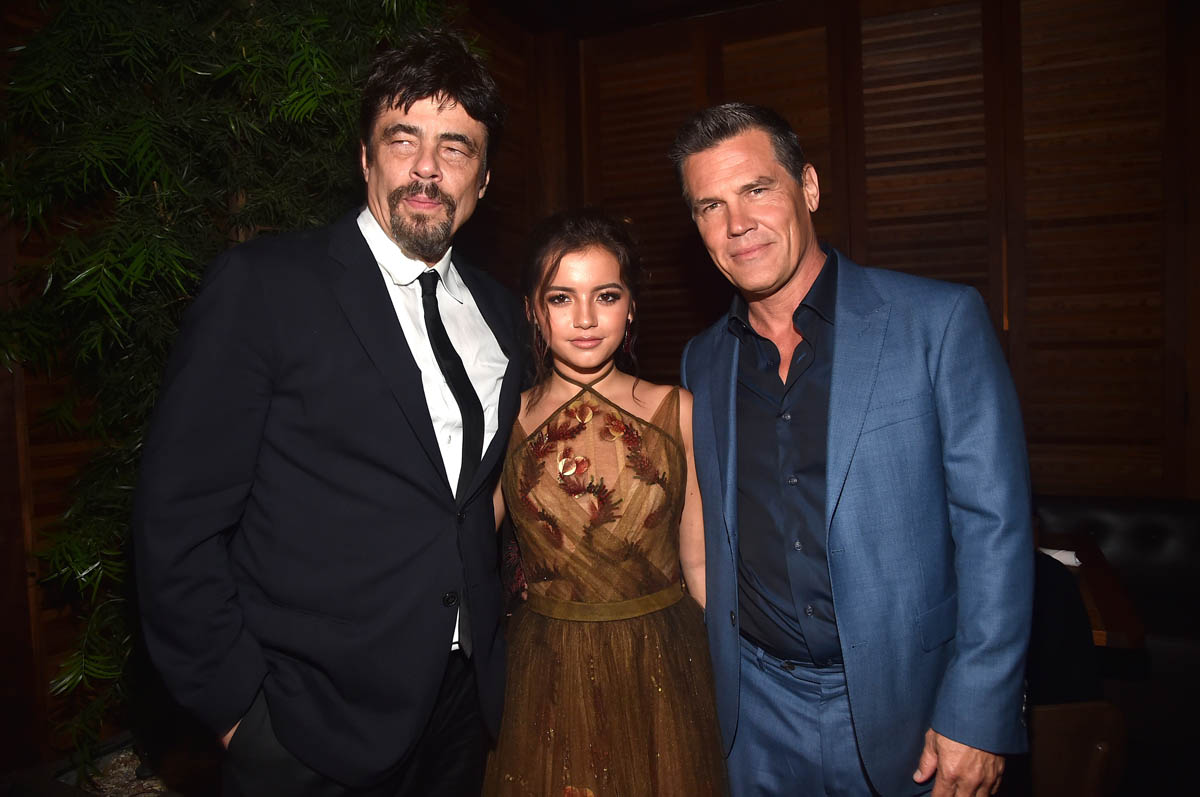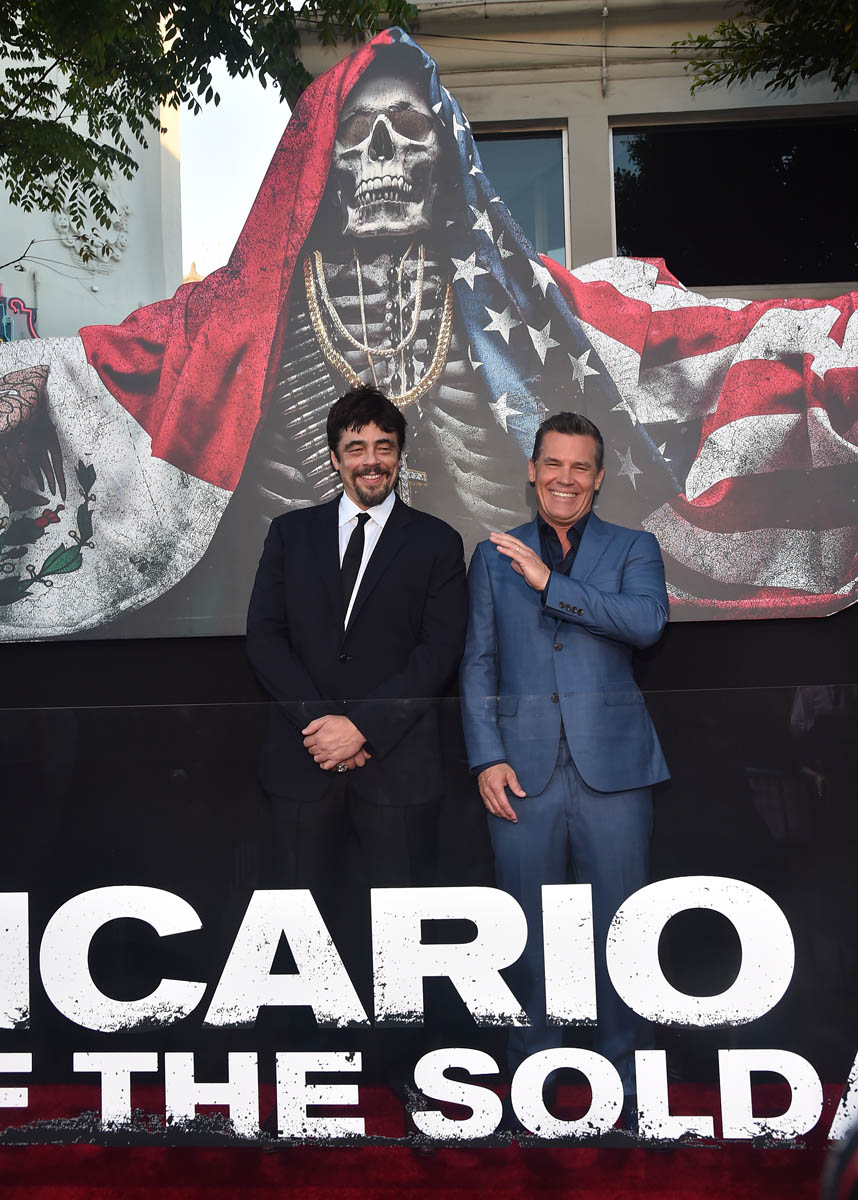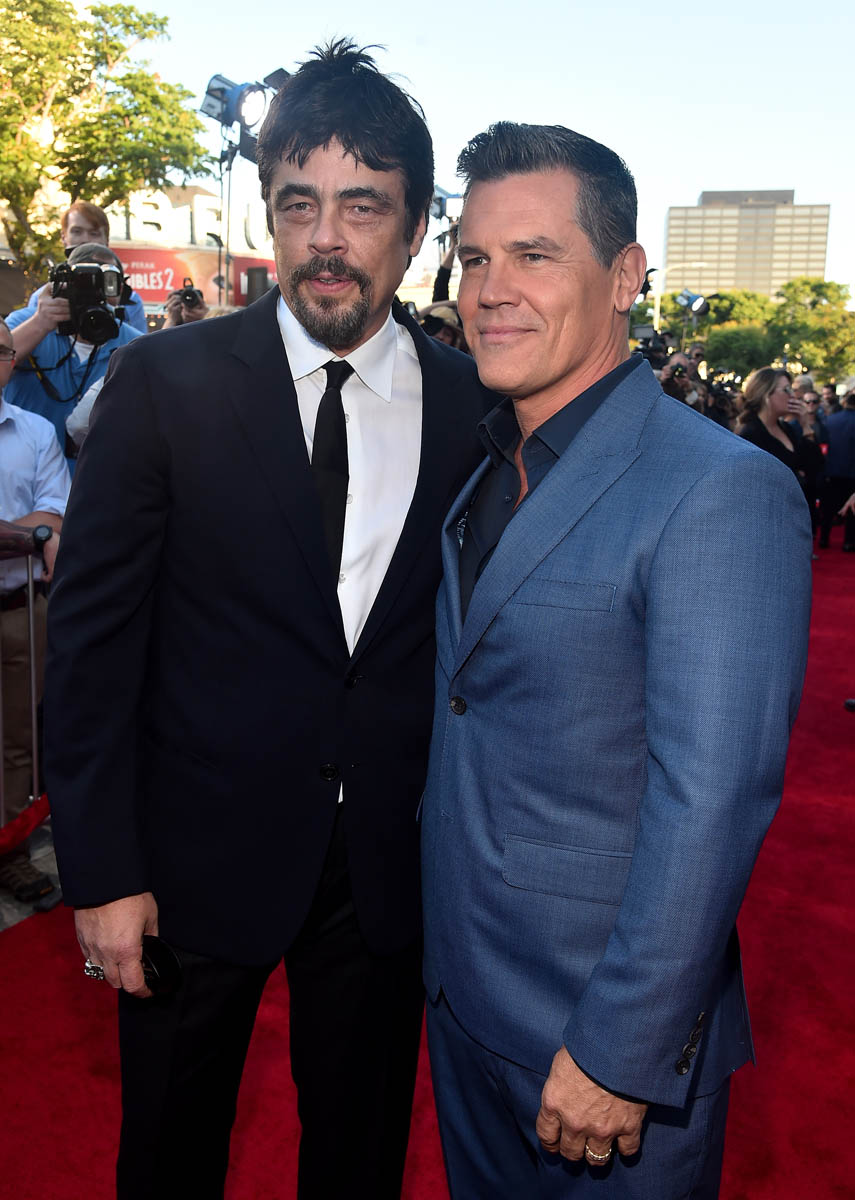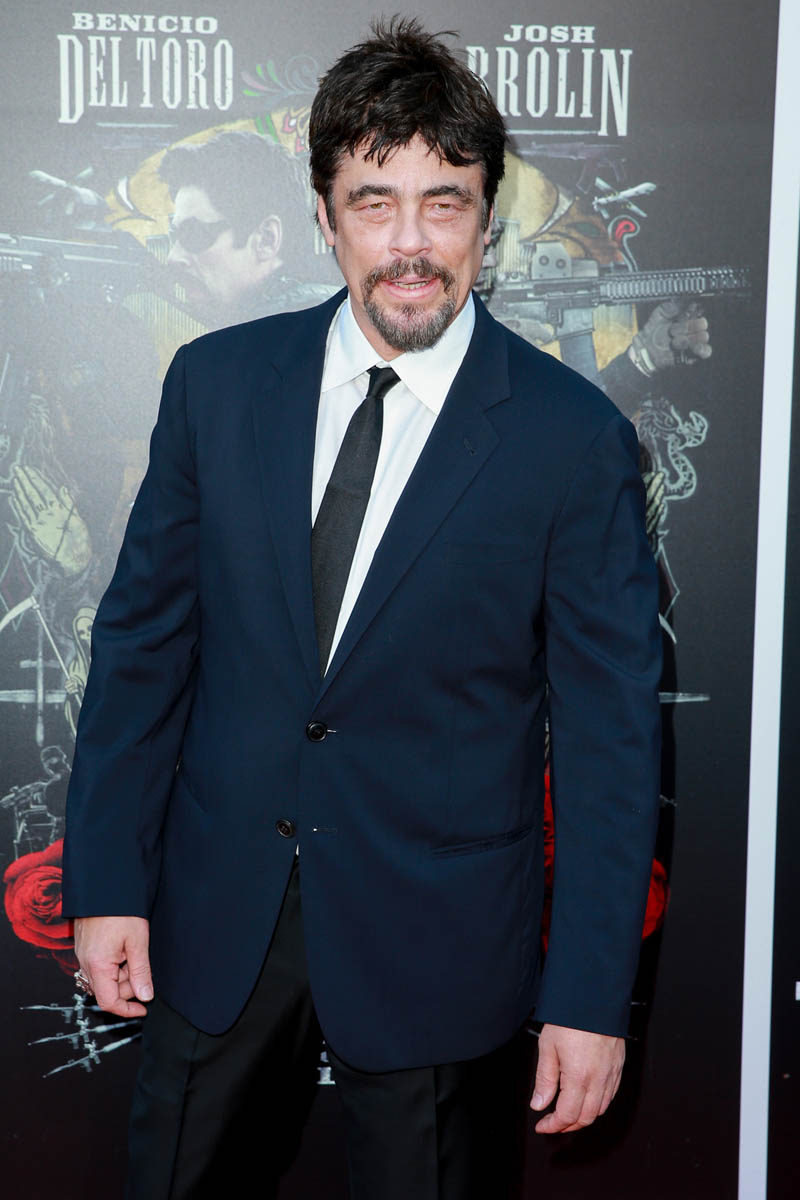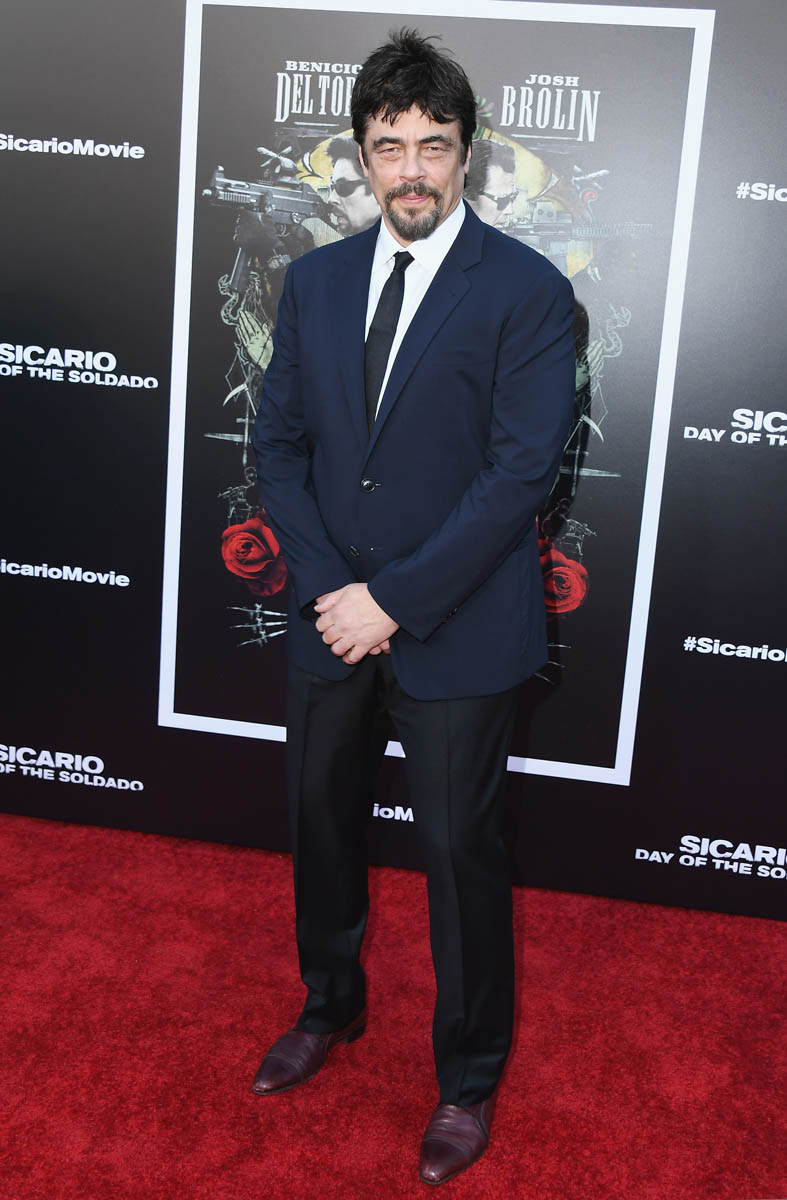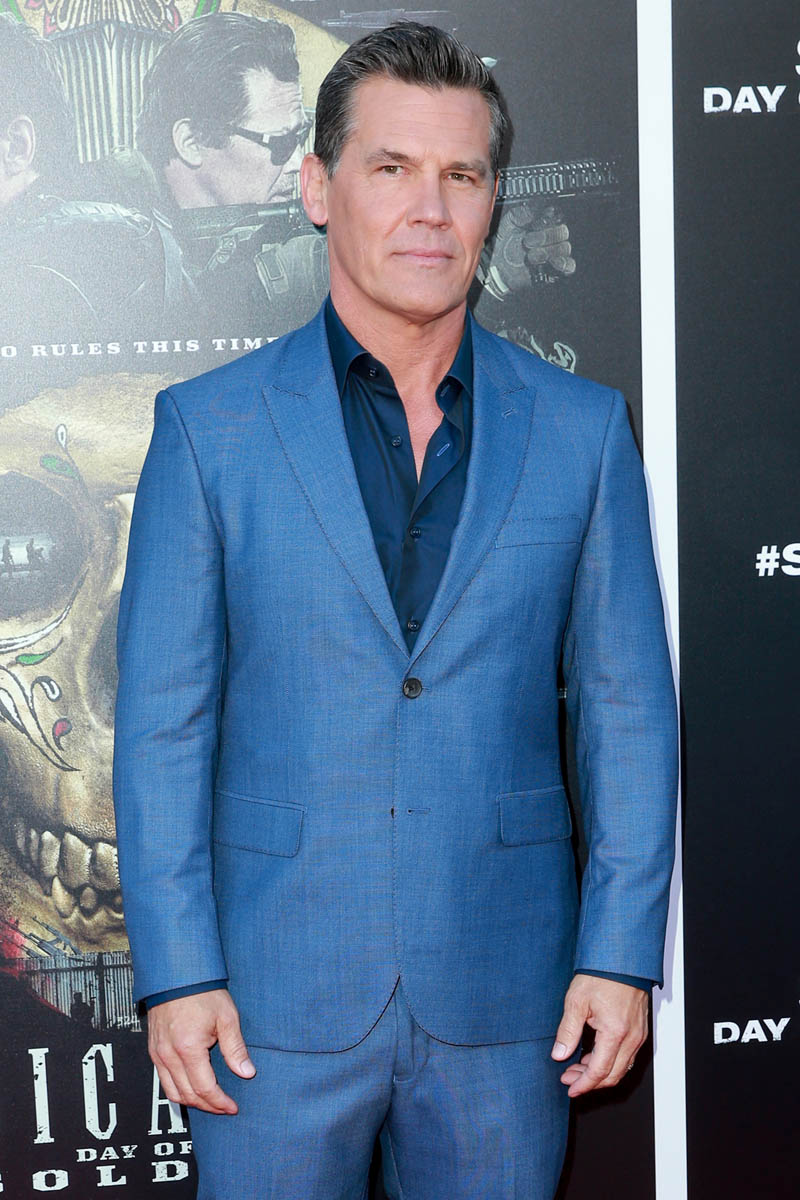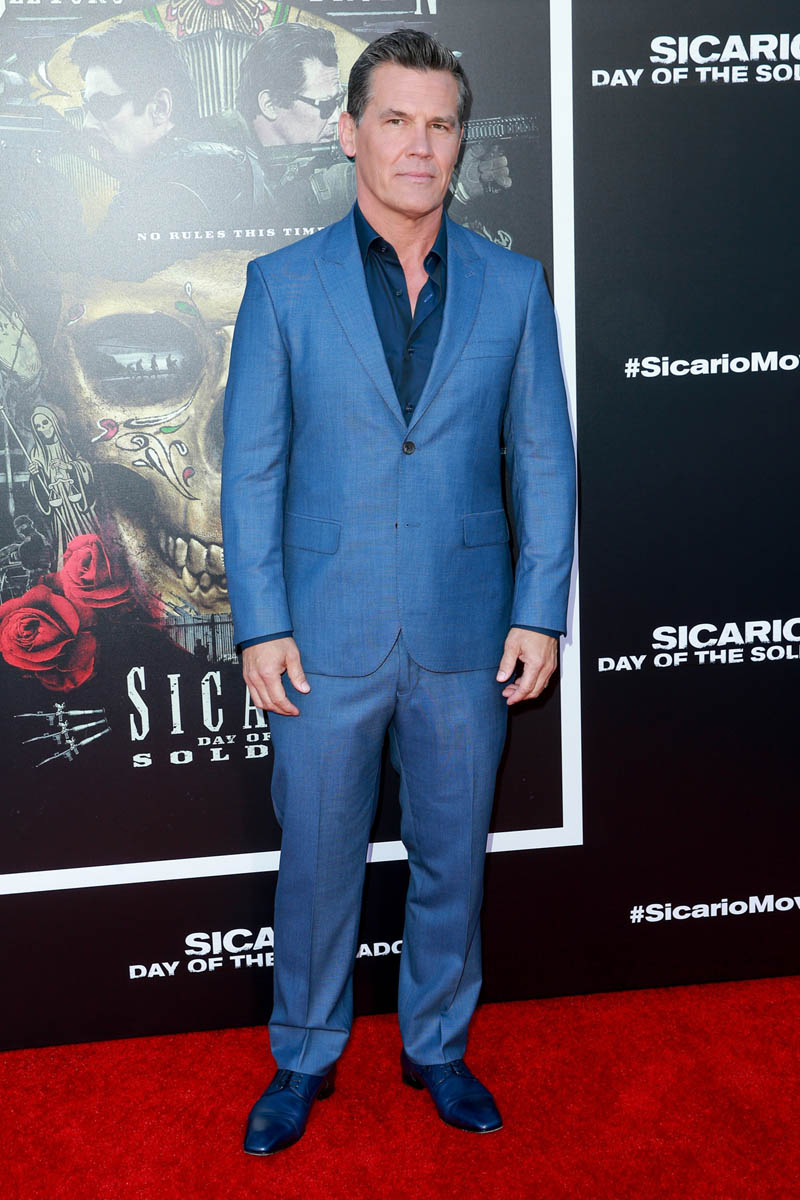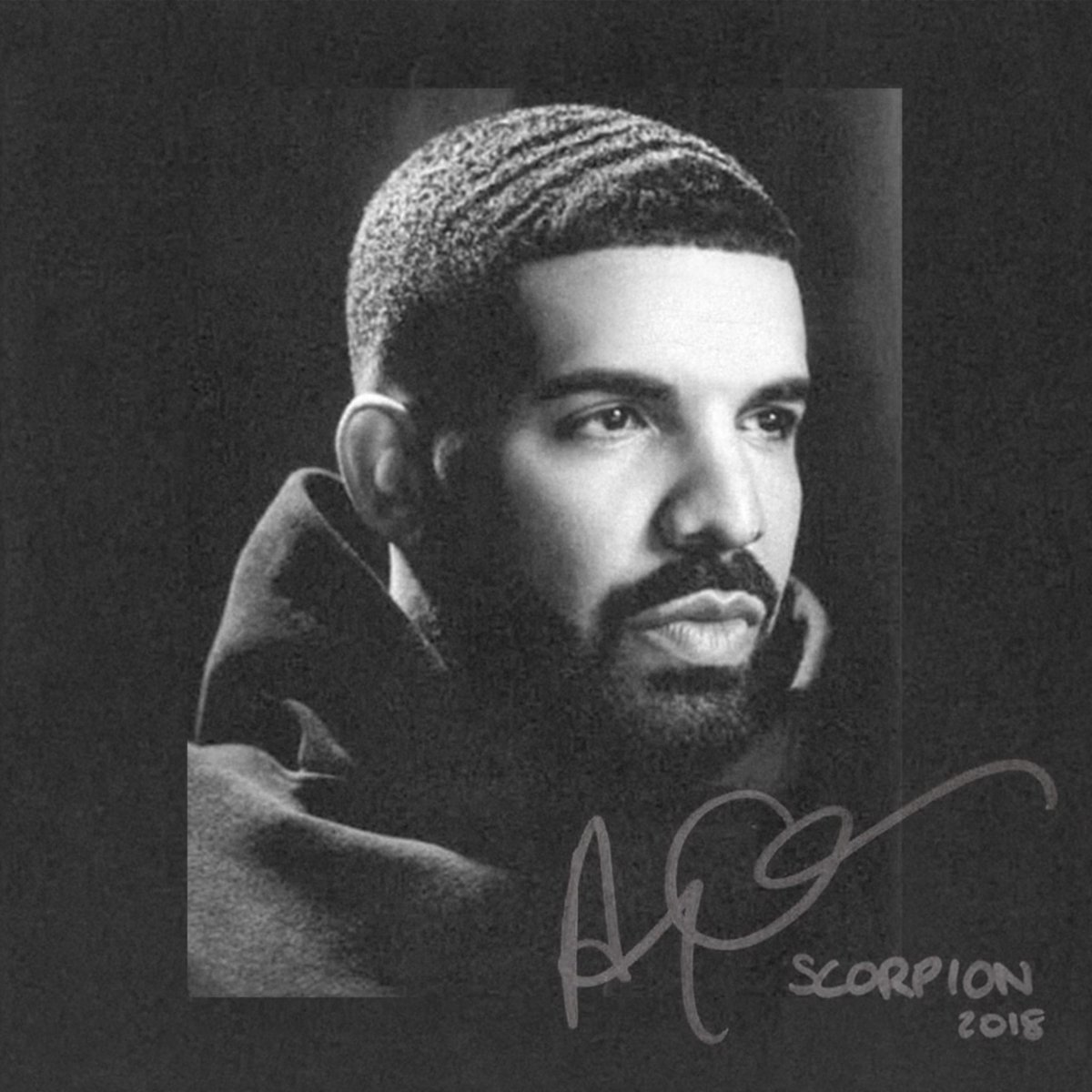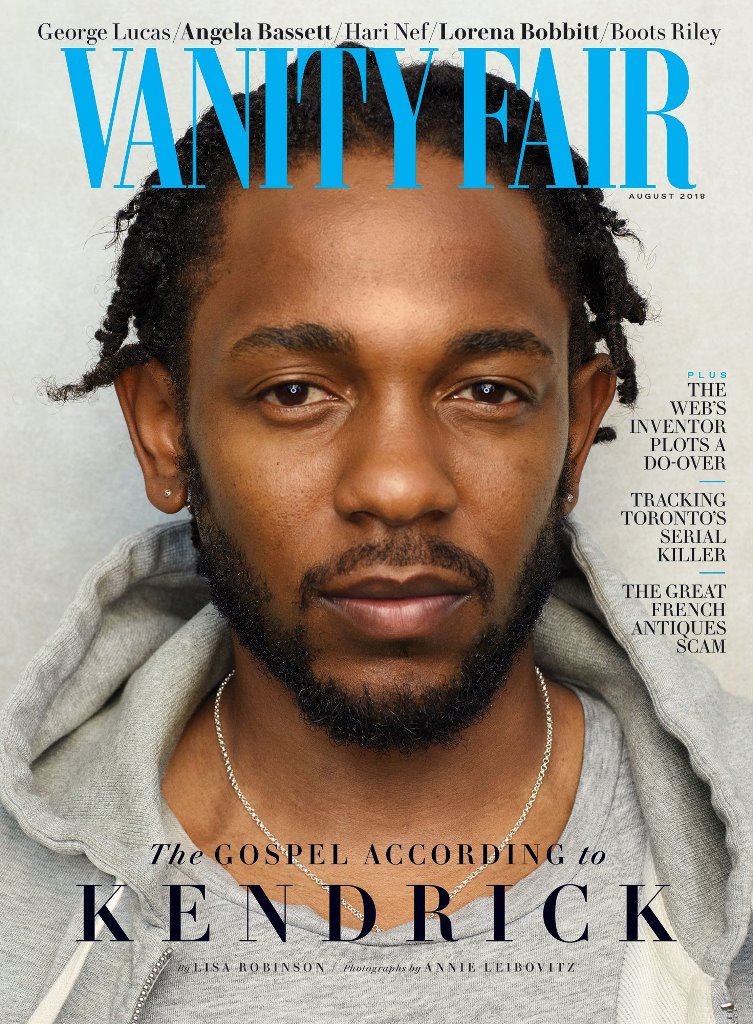Benicio Del Toro in Sicario: Day of the Soldado


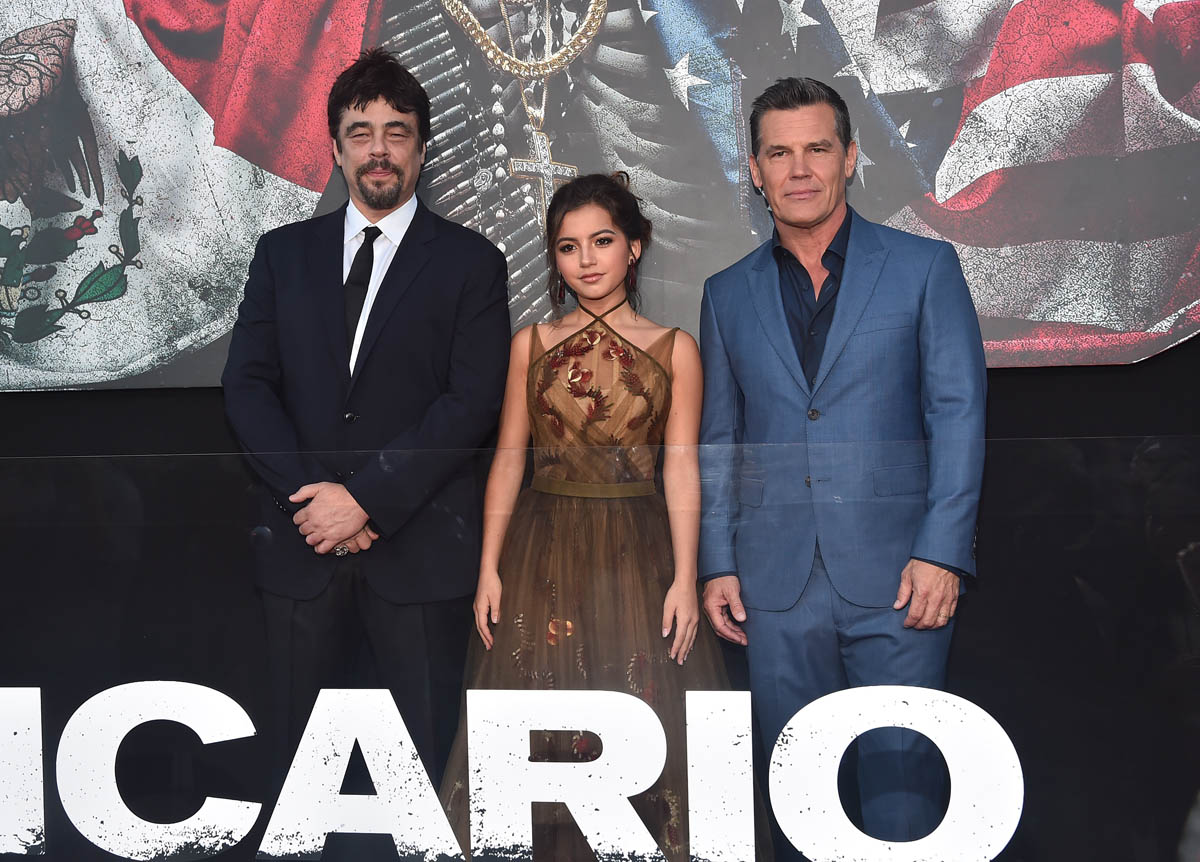
As I write this review, there has been another mass shooting in America. More people are dead. More people are injured. More suffering, more anger, more inaction, more misery. We can’t go a f*cking day without some fresh hell bursting forth and poisoning the well. At this point, we’re chest-deep in sludge so toxic I honestly, really, don’t think we’ll survive it. A few years ago I stood in Lainey’s kitchen and told her it felt like my country was falling apart. Today, it feels like we’re broken beyond repair. We’re broken, we KNOW we’re broken, and we can’t do anything to stem the f*cking bleeding, figurative AND literal, because we live in a world where our neighbors BLEED and we don’t do a goddamn thing to stop it.
I was already troubled going into Sicario: Day of the Soldado, the tragically named sequel to Sicario, the 2015 drug-war drama-thriller that proved a muscly action movie could still have a moral compass and a brain. That film was written by Taylor Sheridan, who returns to pen the sequel, though original Sicario craftsmen Denis Villeneuve and Roger Deakins have been supplanted by Italian director Stefano Sollima and cinematographer Dariusz Wolski. They uphold the haunting beauty of Sicario, if with less distinct fingerprints than Villeneuve and Deakins. Technically, Soldado is highly proficient, a “good” movie if the rubric is solely competent filmmaking. But narratively Soldado has lost the moral compass that guided Sicario, and frankly, this film could not arrive at a worse moment in America. It is impossible to separate Soldado from the moment it occupies, and it is worse for it.
The opening minutes of the film include two suicide bombings, one at the US-Mexico border, and one at a supermarket in Middle America. The connection is clear—the terrorists are infiltrating our southern border and coming to attack us, a plot point taken straight from Fox News. Later in the film Sheridan attempts to contextualize this by revealing that all but one of the terrorists are actually home grown, American citizens who were radicalized and then murdered their fellow citizens. The contextualization fails, though, as the damage is already done. Seeking answers for how the terrorists got the border—before we know most of them were already here—CIA agent Matt Graver (Josh Brolin) threatens a Somali pirate who was aware of human trafficking, including Yemeni terrorists. He blows up the Somali’s house and people in the audience clapped and cheered—it’s unsettling, to say the least. The reveal that the true threat is already here is met with indifference as it is quickly brushed aside and the audience is not forced to reckon with it.
Sicario is a moral morass where anyone who becomes even tangentially involved with the so-called war on drugs is immediately tainted by its cruelty and failure. But Soldado’s morality is much less clear, as there is no wide-eyed do-gooder Emily Blunt type to stand in for the audience’s own misgivings and disgust. Center stage this time is occupied by Graver and his hitman asset Alejandro (Benicio Del Toro), and Soldado follows a much more typical macho action movie formula. Graver and Alejandro are charged with stirring up trouble south of the border, instigating a cartel war to give an excuse for the president to order military force on the border. This involves kidnapping the daughter of a cartel kingpin, which does not work out but does give Alejandro the chance to be a more traditional hero, trying to save young Isabel (Isabella Moner) from a CIA-ordered hit squad.
Trying to make Graver and Alejandro action heroes is a betrayal of Sicario’s “no heroes here” storytelling. Soldado stops short of asking us to actually like Graver, but Alejandro gets the full hero workover, and even a three-quel baiting ending that sets up a revenge fantasy for Sicario 3. Oh great, just what we need, the morally compromised hitman becoming John Wick. But John Wick lives in a blatant fantasy world, where Soldado is set within our reality, so closely formed to our world that many scenes look like they could be lifted right off the news. The message, then, is ENTIRELY different.
Soldado conflates US immigration and national security in a way that is at this very moment being used to trample human rights; it justifies enormous real world suffering as the byproduct of “necessary” protectionism, and it dismisses human trafficking as only worth considering if it involves terrorists. Besides Alejandro, only Latinx characters on screen are traffickers, cartel-adjacent victims, or “sheep” who aren’t granted even a scrap of humanity. This is Trump’s campaign statement about “bringing drugs…bringing crime” brought to life and used to justify the actions of warmongers—something we are actually on the brink of doing in real time. Soldado might technically be a “good” movie, but it is in every other way bad, the ugliest parts of America not held up for examination or any meaningful understanding, but to feed an outdated narrative about the cowboys who get sh*t done when no one else has the stomach for it. You’re right, Soldado, I don’t f*cking have the stomach for this.

